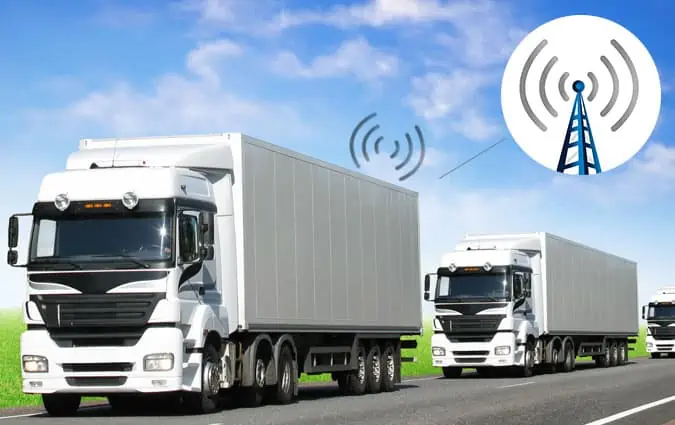How to Choose a GPS Fleet Tracking System: 6 Questions to Ask Before You Buy
When you operate a GPS fleet, you will have to capture, analyze, and organize a continuous data flow. From your vehicles, you can learn a lot of things, including fuel efficiency and driver behaviors, which will help you make significant improvements. But for that, the right technology is required. Modern telematics and fleet GPS tracker technology are two of the most important tools a fleet manager can use to increase drive cost savings and vehicle efficiency.
In recent studies, it has been found that 98% of companies have greatly benefited from using GPS tracking software, with 45% of them having achieved positive return-on-investment in less than one year. Read this article to know all the details regarding choosing a fleet management GPS tracker.
GPS Fleet Tracking
You can use this technology to manage and enhance expenses, legal compliance, utilization, productivity, and safety for your fleet.
Fleets leverage data from two sources – vehicle efficiency and driver behaviors.

Vehicle Efficiency
If you keep your vehicle running when it is not in motion, you will lose a significant amount of fuel. You can learn a lot about your fleet efficiency from your daily vehicle operations. Using GPS fleet tracking will allow you to track advanced fleet data, such as:
- Engine performance
- Vehicle speed
- Idling time
- Mileage
- Emissions
- Location tracking
- Fuel efficiency
Diagnostic trouble code alerts are also implemented in many telematics systems to ensure that the vehicles are taken proper care of.
Driver Behavior and Safety Tracking
As a fleet manager, ensuring your drivers’ safety is one of your key responsibilities. When you use a Fleet GPS tracker, you will be able to continuously receive on-the-road behaviors of your drivers, which include:
- Braking habits
- After-hours usage
- Speed
- Erratic driving
- Acceleration habits
Not only that, but telematics will also allow you to comply with ELD (Electronic Logging Device) regulations.
You can prepare safety reports using this data and provide your feedback to the drivers.
Hardware and Software
GPS devices and sensors fall in the ‘hardware’ category. You can install these tools in each vehicle, above the gas pedal, or behind the dashboard.
You have to keep a centralized software system to transmit all the collected information.
The GPS devices and the software work together to provide the fleet managers with real-time information about driver behaviors and vehicle metrics.
You can use data collected by the fleet management GPS tracker to build strategies to accomplish specific business objectives, such as reinforcing safety policies, reducing risks, and enhancing driver behavior.
What Should You Look for in a GPS Fleet Tracking System?
What type of GPS fleet tracker you need will depend on several factors, some of which are as follows?
Mobile Application and Navigation Options
Many cloud-based GPS trackers have add-ons, including routing and navigation capabilities. When connected to the mobile phone of a driver, a GPS can help them with driving directions and instructions through a mobile application.
As the manager, you can also use a web interface to alert your drivers of any changes.
Customer Support
When you use a GPS fleet tracking system, remember that it needs proper installation and management to assess data. While you can handle these services in-house, always make sure you provide adequate customer support.
The best thing you can do is work with a fleet management company. It will be their responsibility to look after installation and activation.
Alert Systems
Another critical benefit a fleet GPS tracker offers is that it allows fleet managers to create alerts through emails or text messages for real-time updates on car statuses. Not only that, but you will also receive alerts when issues like unsafe driving behaviors, route delays, and accidents arise.
Ease of Use
GPS tracking devices and software for fleets are also very easy to use. Usually, you will find a dashboard that can be operated even without knowing technical skills. At the time of purchasing, you can go through free product demonstrations.
Fuel Card Program Integration
Fleet management GPS trackers also have a fleet fuel card program installed, which allows the managers to track fuel spend and make sure they purchase the tracker following the policies.
You may also find integration capabilities so that you can not only track and manage fuel spending but also detect unauthorized activities.
Take a Look at the Pricing Structures
These devices are available for a wide range of costs in the market, with a tiered pricing structure being the most common.
Your fleet GPS tracker expenses will be higher if more vehicles are in your fleet. Fortunately, pricing breaks are offered once the fleet volume starts rising.
- Upfront costs: Expenses for physical devices and installation are covered.
- Monthly costs: On the other hand, monthly costs cover a management and service charge.
6 Questions You Should Ask at the Time of Buying
While buying a GPS fleet tracking system, it is important to ask yourself the following questions.
- What objectives do you want to fulfill with this tracking system?
- How much budget do you have?
- How many vehicles do you plan to track?
- What kind of information do you want from tracking?
- Have you thought about the procedure you will follow to use the gathered data?
- Do you take help from a fleet management company or fleet manager to implement a GPS solution, make necessary improvements, and monitor the data?
Conclusion
There are some top-rated fleet management GPS trackers available in the market. Each of them comes with excellent features designed to deliver the best results. Before you make the final decision, read this article for complete understanding.
